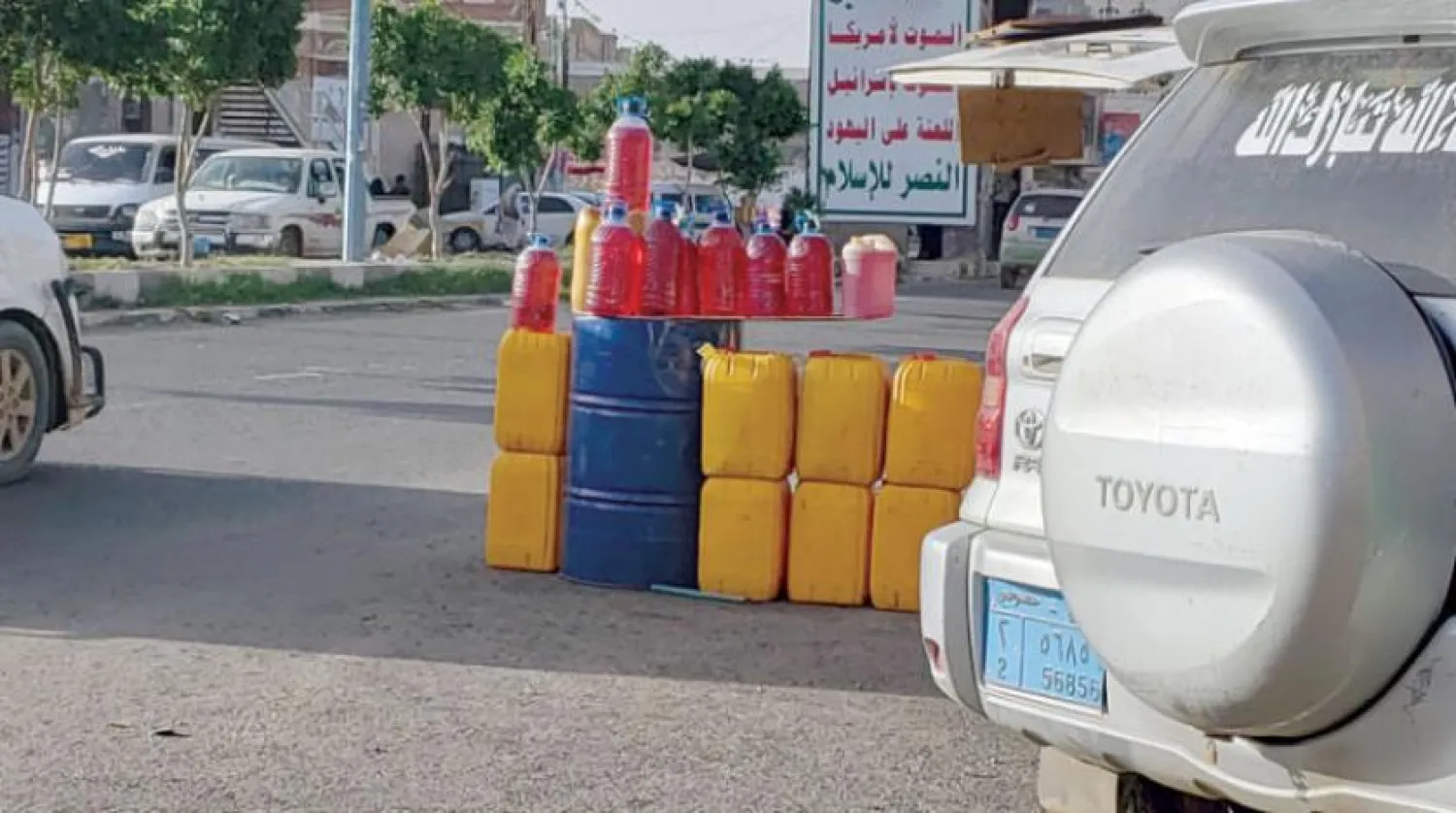Fuel prices tripled in Yemeni areas held by coup militias following Houthi orders to shutdown official gas stations and to drive up the value of the black market. What further aggravated the crisis was the allocation of available fuel stock for the insurgency’s war effort.
Seeking to bolster the oil black market, Houthi militias have been responsible for triggering a fuel crisis back in June.
This has doubled the suffering of Yemenis who have to endure poor living conditions while Houthis also violated the agreement achieved on the policy of importing fuel to Hodeidah ports.
Houthis have raided the private bank account which receives port revenues in the coastal governorate.
Yemeni locals in Sanaa and other Houthi-held cities complained to Asharq Al-Awsat about the surging oil prices at the black market which has expanded greatly over the recent period.
A 20-liter canister of fuel now runs for 20,000-28,000 Yemeni rials, registering an approximate 10,000 Yemeni rials increase from September.
A US dollar sells at approximately 600 Yemeni rials.
The surge has exacerbated the already tragic living, humanitarian and health conditions suffered by Yemenis who accused Houthi leaders of directly being responsible for driving the prices of oil up.
Residents in Sanaa, Ibb, Dhamar, Amran, Hajjah, Al Mahwit, and Rayma governorates, all of which fall under Houthi control, have blasted Houthi militias for generating a crisis that spilled over into the basic commodities and services sectors.
They also renewed their accusations of Houthi militias stockpiling fuel that is enough to satisfy market needs for months to come.
The hike in oil prices has trickled down to disturb other vital social sectors in Houthi-held areas, such as public services, health, electricity, and transportation.
Houthis continue to tighten their hold on fuel supplies to strengthen their market monopoly and drive prices up and down as they please. They also have secured dominance over the oil black market.
This is in line with the Iran-backed group’s longtime policy of exploiting oil and gas by products in areas under their control.
Prices have seen a gradual increase since early June, 2020.









